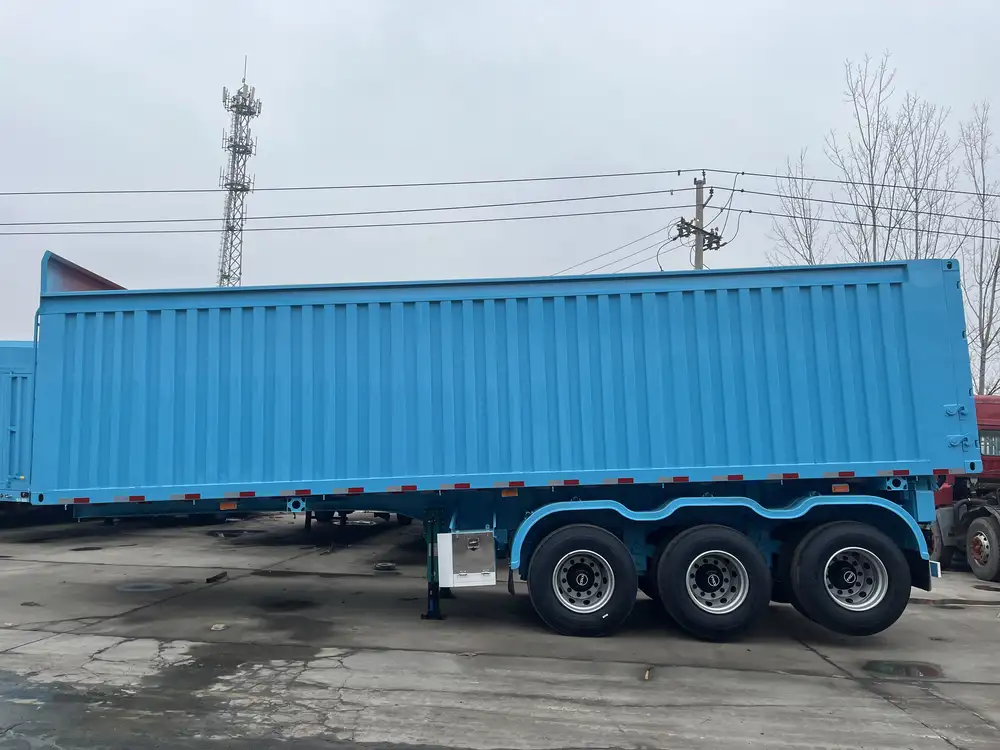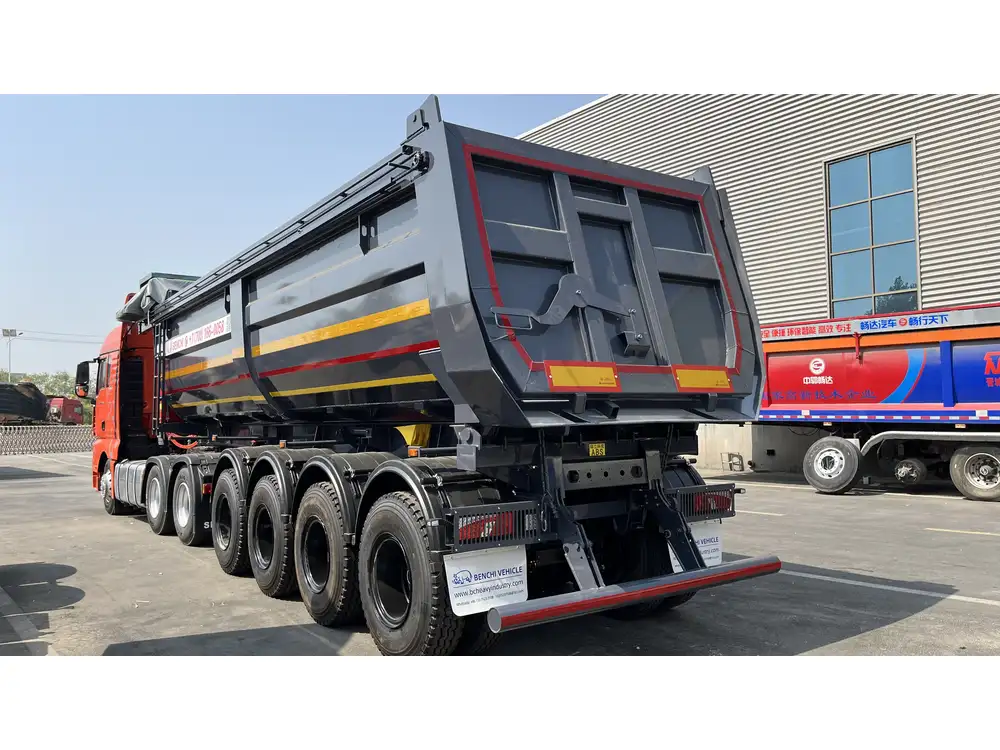When considering the acquisition of a 5-ton dump trailer, one of the paramount aspects to evaluate is its weight. Understanding how much a 5-ton dump trailer weighs can have significant implications not just for transporting cargo but also for compliance with legal regulations, the capabilities of vehicles towing the trailer, and overall operational efficiency.
1. The Basics of Dump Trailer Weights
1.1 Standard Weight Range
A 5-ton dump trailer is designed to carry a maximum capacity of 10,000 pounds (5 tons). However, the trailer itself also has a considerable weight, which varies depending on its construction materials, size, and design features. Generally, the average weight of a 5-ton dump trailer ranges between 2,500 to 3,500 pounds.
| Trailer Type | Average Weight |
|---|---|
| Standard 5-Ton | 2,500 – 3,500 lbs |
| Heavy-Duty Models | Up to 4,000 lbs |

Understanding Weight Discrepancies
The differences in weight can be attributed to various design elements, such as:
- Material: Steel frames versus aluminum bodies.
- Design Features: Single versus dual axles, hydraulic lifting systems, bed size.
- Manufacturer Variations: Different brands may implement unique designs that impact weight.
1.2 Importance of Knowing the Weight
Knowing the exact weight of your 5-ton dump trailer is crucial for:
- Towing Vehicle Capacity: Ensuring your towing vehicle is rated to handle both the trailer’s weight and its load.
- Road Regulations: Complying with weight limits set by local and state authorities—including gross vehicle weight (GVW) limits.
- Safety Considerations: Maintaining control and stability while driving.
2. Factors Influencing Dump Trailer Weight

2.1 Materials Used in Construction
The construction material significantly impacts weight.
- Steel: Offers durability but is heavier, increasing the overall weight of the trailer.
- Aluminum: Lightweight and resistant to corrosion, often leading to reduced trailer weight.
2.2 Size and Dimensions
The size of the trailer’s bed, axle configuration, and additional features (such as sides or tailgates) contribute to overall weight. A larger bed and added features typically increase weight.
2.3 Hydraulic Systems
Dump trailers equipped with hydraulic lift mechanisms may weigh more due to additional components like cylinders and added structural support.

3. Calculating the Ideal Weight for Compatibility
3.1 Evaluating Your Towing Vehicle
Before purchasing a 5-ton dump trailer, it’s essential to verify your vehicle’s towing capacity. The towing vehicle must manage:
- Trailer Weight: Consider both the unloaded trailer weight and the maximum load it will carry.
- Cargo Weight: Understand the potential cumulative weight of the load to avoid exceeding the vehicle’s towing limit.
Example Calculation:
- Towing Vehicle Capacity: 12,000 lbs
- Unloaded Dump Trailer Weight: 3,000 lbs
- Maximum Load Weight: 10,000 lbs
- Total Weight: 3,000 lbs (trailer) + 10,000 lbs (load) = 13,000 lbs
In this scenario, the towing vehicle’s capacity will be exceeded, which may lead to safety hazards.

3.2 Legal Weight Limits
In most jurisdictions, there are legal limits on the total weight a vehicle can carry while towing a trailer. Exceeding these limits can result in fines or legal penalties. It is paramount to understand:
- Gross Vehicle Weight Rating (GVWR): Total weight of the tow vehicle and trailer combined.
- Gross Combination Weight Rating (GCWR): Total weight of the tow vehicle, trailer, and payload.
4. Common Uses for 5-Ton Dump Trailers
4.1 Construction and Landscaping
5-ton dump trailers are widely used in construction for transporting materials such as soil, gravel, and debris. Their capacity and weight make them ideal for medium-duty tasks.

4.2 Agricultural Applications
Farmers utilize dump trailers for tasks such as transporting feed or handling waste, benefiting from their robust load capacity and ease of use.
4.3 Recycling and Waste Management
The construction of dump trailers allows for easy loading and unloading, which is advantageous for recycling operations or waste management firms.
5. Choosing the Right 5-Ton Dump Trailer

5.1 Assess Your Needs
Selecting the right dump trailer hinges on understanding your specific requirements:
- Type of Load: Consider whether you’ll be moving dirt, heavy construction materials, or lighter waste.
- Frequency of Use: Frequent use may necessitate a more robust construction to withstand wear and tear.
5.2 Budget Considerations
While your initial investment may be a major factor, it’s vital to consider the long-term operational costs associated with maintenance, fuel efficiency while towing, and potential resale value.
| Factors to Consider | Description |
|---|---|
| Durability | Material choice and construction quality |
| Maintenance Costs | Warranty and parts availability |
| Resale Value | Brand reputation and market demand |
6. Conclusion: Making an Informed Decision
When deliberating the purchase of a 5-ton dump trailer, meticulous consideration of its weight is essential. Being informed about not only the trailer’s weight but also the factors that affect it allows for smarter decisions when aligning with towing capacities, legalities, and intended use-combinations.
By understanding the complexities of dump trailer weights, you can effectively choose the right model that meets your operational needs while ensuring safety and compliance with regulations. Careful evaluation of weight, alongside truck compatibility, will ensure seamless transportation and handling of materials, ultimately fostering efficiency in your operations.
Ultimately, whether you are in construction, agriculture, or waste management, the right 5-ton dump trailer can significantly enhance the effectiveness of your work—making it a worthwhile investment that demands your careful consideration.



